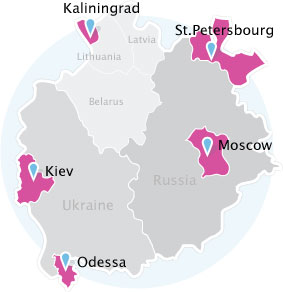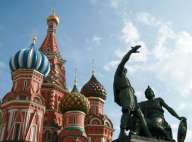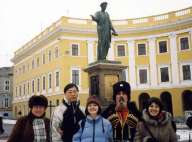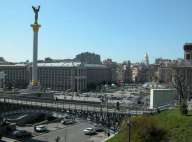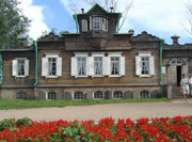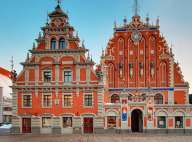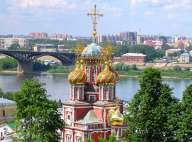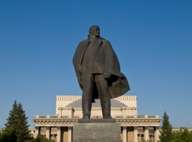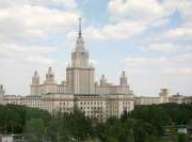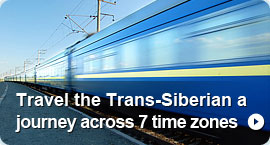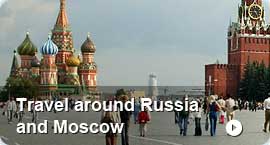Center for International Education
Center for International Education
Pre-University and Russian Language Programmes for Foreign Students
Director: Vladimir N. KOCHETOV
Admission Office: phone: +7-095-124-8011, -124-8488, fax: +7-095-125-4461
EMail: adm@cie.msu.ru
Address: 24/35, bldg.1, Krzhizhanovskogo Street, Moscow, 117259 Russia
General Information
Over 40 years ago Moscow State University (MGU) established a special Preparatory Faculty with the goal of preparing foreign students for entrance into the various faculties of MGU. Over the years the range of courses offered by the Preparatory Faculty has expanded and the name changed to the Center for International Education.
During the past 40 years the Center has accumulated a wealth of experience in the teaching of the Russian language to foreigners. This experience is reflected in the textbooks and course materials utilised in the classroom. Most of these materials were prepared by specialists from within the Center itself.
Departments
- Russian Language (Initial Level)
- Russian Language (Advanced Level)
- Science
- Humanities
Laboratories
- Information Technologies in Education
- New Teaching Methods
- Technical Aids
The total number of teachers is 150. Among them there are 55 lecturers and professors having Ph.D. and D.Lit. degrees. All our teachers are fully qualified and experienced in teaching Russian as a Foreign Language and Foundation Courses in Humanities and Sciences to provide the opportunity for foreign students to meet the University’s entry requirements.
In class teaching methods are augmented by the various audio-visual aids available to students of the Center – these include a closed circuit television studio, a number of language labs with an extensive collection of audio tapes, and classrooms equipped with video systems for the viewing of educational and feature films. Special study rooms are equipped with computers.
The Center provides students with the necessary educational materials. Course books are supplied by the Center’s library for the duration of the course and should be returned when the course ends.
The Center provides students with official documents which verify their status as fully registered members of the University and give them the right to use educational and other facilities in accordance with the University rules.
Educational Programmes Offered
Pre-University Programmes
These programmes provide General Russian Language and Russian Language for Academic Purposes training as well as Foundation Courses in Humanities and Science preparing foreign students for University’s undergraduate and postgraduate studies (Pre- BA, BSc, MA, MSc, PhD, DSc, MD).
The duration of this course is one academic year (September-June). During the last week of December and the first week of January classes are not in session.
Groups consist of 5 to 8 students in Russian language classes and a maximum of 16 students in other classes. These groups have lessons for 6-8 academic hours a day, 5 days a week. One academic hour is 40 minutes.
In order to proceed into the first year of the chosen degree programme foreign students must normally obtain a pass in the Russian language skills and the compulsory subjects equivalent to those expected from russian candidates applying for the same degree programmes. To reach the required standard our Pre-University Programme offers to foreign students an initial conversion year providing a useful orientation to academic and social life in Russia. Students previous qualification are also taken into account.
The Pre-University programme initially provides an intensive General Russian language course and then moves on with a mixture of Russian for Academic Purposes and other subjects related to students’ future field of study. Course textbooks for science, mathematics, computer programming, engineering, economics, law, journalism, etc. were written by teachers of science and humanities in collaboration with teachers of Russian as a foreign language.
The programme concentrates on the following skills in Russian:
- understanding lectures and making notes;
- reading very widely, making notes and summarising texts;
- presenting arguments and participating fully in seminars;
- writing essays, reports and dissertations (espessially for pre-postgraduate students).
The conversion year gives students an opportunity to see faculties and departments of Moscow State University, learn about the chosen degree courses, meet staff and students.
After successful completion of the course examinations students will receive a certificate which allows them to continue their studies at Moscow State University.
Russian Language Programmes
Russian language courses are available at all levels for a minimum of 4 weeks throughout the academic year. Participants are advised to take courses within the following study periods:
academic year >> September – June
first trimester >> September – December
second trimester >> January – March
third trimester >> April – June
summer course >> July – August
On arrival students have a short, informal interview before being placed in a class at the appropriate level. The number of students per Russian language class is 3 – 6.
Upon completion of the courses participants will be issued a certificate of attendance.
The programmes are designed to satisfy individual needs in a group setting. Small classes ensure that each student gets personal attention from our well qualified and friendly staff.
The chief aim of training is to build and develop Russian language competence in speaking, listening, reading and writing. Particular emphases will be placed on the following items:
- fluency and accuracy in oral communication;
- general listening for both understanding and information;
- general reading comprehension skills;
- writing skills;
- vocabulary development;
- Russian grammar in the context of particular tasks;
- pronunciation work as an integral part of every lesson.
The order in which these skills are taught and the amount of class time allocated to each item will depend upon students’ level of Russian and the length of training.
In class teaching methods include simulated role-plays, paired and group works, reading and discussion of texts, viewing of educational and feature films, special exercises in grammar and vocabulary, work in language laboratories and with computer-based language learning programmes.
For beginners and on elementary level the Center offers full-time tuition. This programme provides the students with 28 academic hours of group lessons each week (5 days a week).
On intermediate and advanced levels we offer:
- full-time tuition programme providing 24 academic hours of language lessons (4 days a week) plus 4 academic hours of elective courses in Russian Literature, in Russian History, Culture and Society or in Business Russian (1 day a week);
- part-time tuition programme providing 18 academic hours of language lessons per week (3 days a week).
In exceptional cases we offer individual tuition programme. This is an intensive and flexible language programme planned to meet one’s special needs. Materials and methods adapted to suit one’s personality and learning strategies. This course is available throughout the academic year for a minimum of 18 academic hours per week.
Training Course for Teachers of Russian as a Foreign Language
The course focuses on the theoretical problems of russian grammar as well as teaching methodology and allows to develop participants’ language skills in occupational communication. The course enables the participants to:
- refresh oral and written skills;
- build confidence;
- provide an update on current methodology;
- improve classroom techniques;
- develop appropriate teaching materials;
- increase awareness of Russian culture.
Russian as a Foreign Language Certificate Examinations
Certificate examinations are often appropriate for those who require evidence of their fluency in Russian to help them in their careers.
Certificate examinations prepared for at the Center for International Education are:
Elementary test. Successful performance in the Elementary test represents a standard of initial competence in Russian which enables a candidate to satisfy his elementary communicative needs in a limited number of everyday situations.
Preliminary test. Successful performance in the Preliminary test represents a standard of competence in Russian which enables a candidate to satisfy basic communicative needs in a limited number of situations in everyday and cultural spheres.
First Level Certificate. Successful performance in the First Level Certificate indicates an intermediate level of competence which enables a candidate to satisfy his main communicative needs in everyday, cultural, educational and professional spheres in line with the

